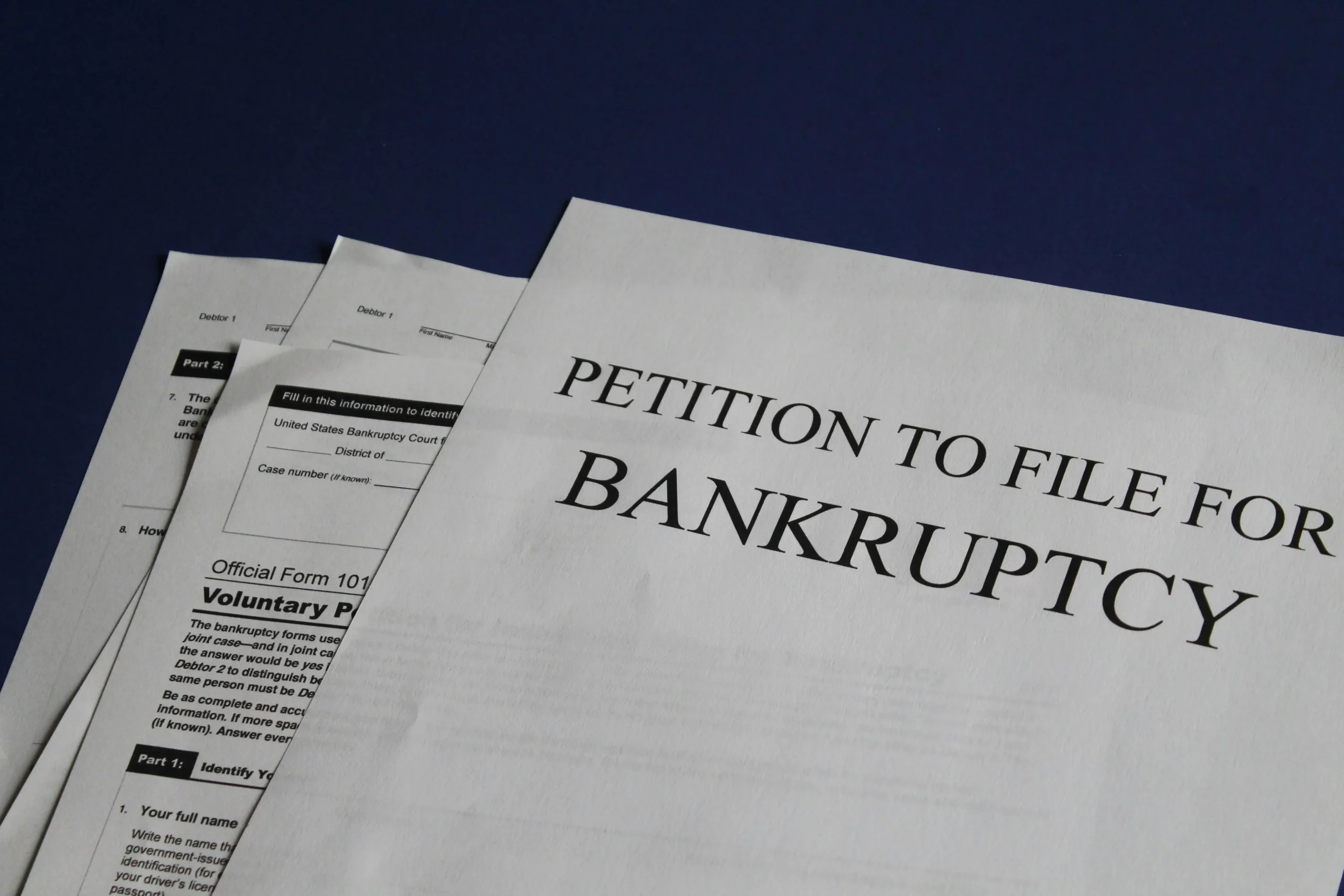When You Need a Bankruptcy Lawyer
Debt can feel like quicksand—the harder you struggle, the deeper you sink. A bankruptcy lawyer doesn’t just file paperwork; they stop wage garnishments, prevent foreclosures, and create a legal path to financial recovery.
This comprehensive guide covers 20 critical bankruptcy topics, from Chapter 7 liquidation to rebuilding credit, giving you the knowledge to make informed decisions about your financial future.
1. Chapter 7 Bankruptcy: Liquidation Process
The Fresh Start Option
A bankruptcy lawyer helps with:
- Eliminating unsecured debts (credit cards, medical bills)
- Protecting exempt assets
- Stopping creditor calls immediately
Key Fact: 96% of Chapter 7 filers keep all their property using exemptions.
2. Chapter 13 Bankruptcy: Repayment Plans
Reorganizing Your Debt
Ideal for those who:
✔ Want to keep homes/cars
✔ Have regular income
✔ Need 3-5 years to catch up
Success Story: A nurse saved her home from foreclosure through a $250/month Chapter 13 plan.
3. Chapter 11 Bankruptcy for Businesses
Corporate Debt Restructuring
Used by:
- Small businesses (under new 2019 laws)
- Large corporations
- Entrepreneurs with personal guarantees
Recent Case: Local restaurant chain survived COVID debts by restructuring under Chapter 11.
4. How to Qualify for Bankruptcy
Eligibility Requirements
- Chapter 7: Pass means test or qualify for exemptions
- Chapter 13: Under $2.75M in debt
- Chapter 11: No debt limits
Pro Tip: “Even if you ‘fail’ the means test, you might qualify for special circumstances.”
5. Debt Settlement vs. Bankruptcy
Comparing Your Options
| Bankruptcy | Debt Settlement |
|---|---|
| Court-supervised | Private negotiations |
| Stops all collections | Partial payments |
| Lasts 3-6 months | Takes 2-4 years |
| Discharges debts | Damages credit longer |
Lawyer Insight: “Settlement companies often charge 20% fees with no guarantees.”
6. Rebuilding Credit After Bankruptcy
Rising From Financial Ruin
Fast-track strategies:
- Secured credit cards ($300 limits)
- Credit-builder loans
- Becoming authorized user
- Rent reporting services
Encouraging Stat: 65% get approved for mortgages 2 years post-discharge.
7. Bankruptcy and Foreclosure Defense
Saving Your Home
Options include:
- Chapter 13 mortgage arrears catch-up
- Loan modifications
- Surrendering property debt-free
Critical Deadline: File before sheriff sale date for automatic stay protection.
8. Wage Garnishment and Debt Relief Options
Stopping Paycheck Deductions
Bankruptcy:
✔ Ends most garnishments immediately
✔ May recover recent garnished wages
✔ Prevents future collection actions
Shocking Reality: Creditors can take 25% of after-tax pay without bankruptcy protection.
9. Student Loan Discharge and Bankruptcy
The Tough But Possible Path
Must prove:
- Undue hardship (Brunner test)
- Permanent inability to pay
- Good faith effort failed
2023 Update: New DOE guidelines make discharges slightly easier.
10. Bankruptcy and Tax Debt Resolution
When the IRS Comes Knocking
Dischargeable if:
- Taxes are 3+ years old
- Returns filed 2+ years ago
- Assessed 240+ days prior
Case Win: Client discharged $48,000 in old payroll taxes through Chapter 11.
11. Means Testing in Bankruptcy Cases
The Income Qualification Hurdle
Calculates:
- Median income comparisons
- Allowable expenses
- Disposable income
Workaround: Self-employed? Business expenses may help you qualify.
12. Bankruptcy for Small Business Owners
Protecting Your Livelihood
Options depend on:
- Business structure (LLC vs. sole prop)
- Personal guarantees
- Future viability
Smart Move: Many keep businesses open while discharging personal debts.
13. Common Bankruptcy Myths Debunked
The Truth Behind the Stigma
Myth vs Reality:
❌ “You’ll lose everything” → 92% keep all assets
❌ “It ruins credit forever” → Scores often improve post-filing
❌ “Only deadbeats file” → 62% cite medical bills/job loss
Powerful Fact: Abraham Lincoln filed for bankruptcy before becoming President.
14. Bankruptcy and Divorce: Legal Considerations
Untangling Financial Knots
Key strategies:
- File jointly before divorce (saves $)
- Address property settlements
- Handle support obligations
Caution: Child support/alimony survive bankruptcy.
15. Bankruptcy Alternatives
Other Paths to Debt Relief
Consider:
- Debt management plans (DMPs)
- Debt consolidation loans
- Nonprofit credit counseling
Red Flag: Avoid debt settlement companies charging upfront fees.
16. Bankruptcy Filing Process Step by Step
What to Expect
- Credit counseling course
- Document gathering
- Petition preparation
- 341 meeting with trustee
- Financial management course
- Discharge (60-90 days later)
Pro Tip: Missing any step can get your case dismissed.
17. How Bankruptcy Affects Your Assets
What You Keep vs. Lose
Typically protected:
- Primary home equity (25K−75K)
- Retirement accounts
- Personal belongings
- Work tools
Risky assets:
- Vacation homes
- Luxury items
- Cash value life insurance
18. Bankruptcy and Retirement Accounts
Protecting Your Future
Federally protected:
- 401(k)s
- IRAs ($1.5M cap)
- Pensions
- 403(b)s
Critical: Never drain retirement to pay debts pre-bankruptcy.
19. Exempt vs. Non-Exempt Property
State-by-State Protections
Common exemptions:
- Homestead (varies by state)
- Vehicle equity (2K−12K)
- “Wildcard” exemptions
- Household goods
Strategy: Some states allow choosing federal exemptions.
20. Choosing the Right Bankruptcy Lawyer
5 Must-Ask Questions
- “How many bankruptcy cases have you filed?”
- “Will you personally attend my 341 meeting?”
- “What’s included in your flat fee?”
- “How do you handle creditor objections?”
- “Can you provide recent client references?”
Red Flag: Attorneys who pressure you into any specific chapter.
FAQs: Bankruptcy Lawyer
1. How much does a bankruptcy lawyer cost?
Chapter 7: 1,200−2,500 | Chapter 13: 3,000−5,000 (often paid through plan)
2. Will bankruptcy stop creditor calls?
Yes—the automatic stay begins immediately upon filing.
3. Can I file bankruptcy without a lawyer?
Possible but risky—1 mistake can forfeit rights or get case dismissed.
4. How long does bankruptcy stay on my credit?
Chapter 7: 10 years | Chapter 13: 7 years (but impact lessens yearly)
5. What debts can’t be discharged?
Student loans (usually), alimony, recent taxes, criminal fines.
6. Will I lose my car in bankruptcy?
Not if current on payments or exempt equity exists.
7. How soon can I buy a house after bankruptcy?
FHA loans: 2 years | Conventional: 4 years | VA: 2 years
8. Can employers fire me for filing?
No—that’s illegal discrimination under federal law.
9. What’s the 341 meeting like?
10-minute trustee review—90% of cases have no issues.
10. How do I rebuild credit fastest?
Secured cards, on-time payments, and credit mix help scores rebound in 12-18 months.
Conclusion: Your Financial Fresh Start Starts Here
Bankruptcy isn’t failure—it’s a legal tool that’s helped millions reset their financial lives. A skilled bankruptcy lawyer can stop creditor harassment, protect your assets, and put you on the path to recovery.
Take Action: Schedule a free consultation with a bankruptcy lawyer today—you have nothing to lose but debt.
“Ready for relief? Share your questions below or book a risk-free case evaluation now!”
Learn more about other types of lawyers and their specializations : Types of Lawyers and Their Specializations: 20 Legal Specialties Explained


One thought on “Bankruptcy Lawyer: Your Complete Guide to Financial Fresh Starts”